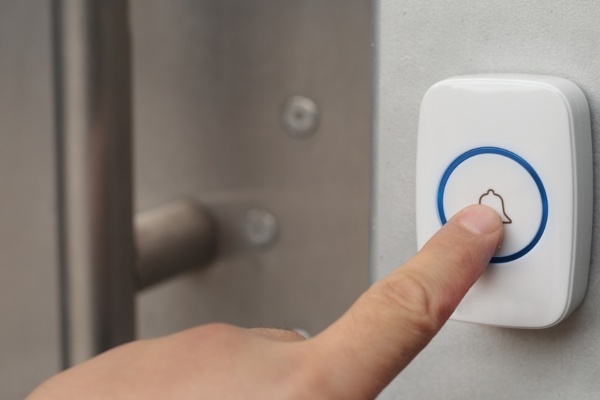Setting up doorbells can be an easy task for a DIYer. You can choose a wired or wireless doorbell at your convenience. But if you choose a wired version, it will be more reliable since it runs on your home’s electricity rather than a battery. They also deliver a strong current to the chimes for a ring that gives a proper sound. Find out below how to install a wired doorbell, including troubleshooting tips.
Before starting
If you are replacing your old wired doorbell, keep the existing wire in place when you remove the button. It is better to keep the wire in good shape for reuse. More importantly, reusing the old doorbell wire saves you time, effort, and money to fish new wire through the walls.
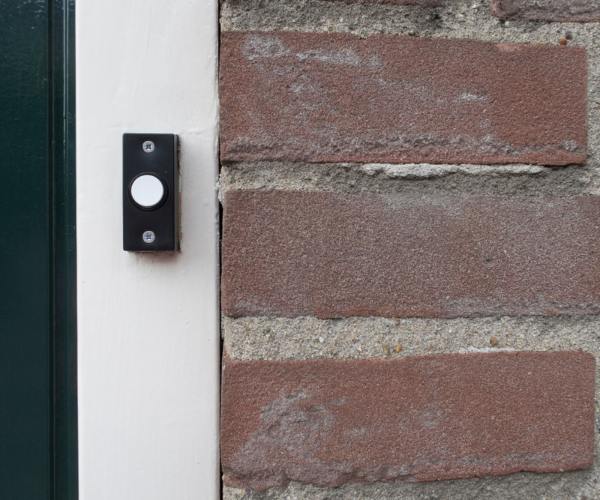
Buy button, wire, transformer, and base separately, or purchase a kit that already has everything you need. There is an advantage to buying a wired doorbell and that is you can be confident that all the materials are compatible.
How do wired doorbells work?
The main components of a wired doorbell system work in conjunction. The process starts when a visitor presses the doorbell.
Doorbell Button
You can find the wired doorbell button either on the left or right side of the front door. Behind the doorbell button, you can see a hole. Two different stands of doorbell wire feed through the hole and are attached to the back of the doorbell button at two ends. One wire is connected to the doorbell transformer and the other one leads to the doorbell base which is the chimes.
Doorbell Wire
The doorbell wire or bell wire is a slim, 20/2 coated copper wire. It consists of two strands often with a strand coated in white plastic and the other strand coated in red plastic. The strands are into single stands for this matter.
Doorbell Transformer
This transformer is a solid-state electrical device that is attached to the side of an electrical box. This transformer converts 120V household current input to a lower 16V output that is used by the doorbell system. The doorbell system can not directly use 120V household current. To work properly, it needs to be reduced or stepped down to a lower voltage.
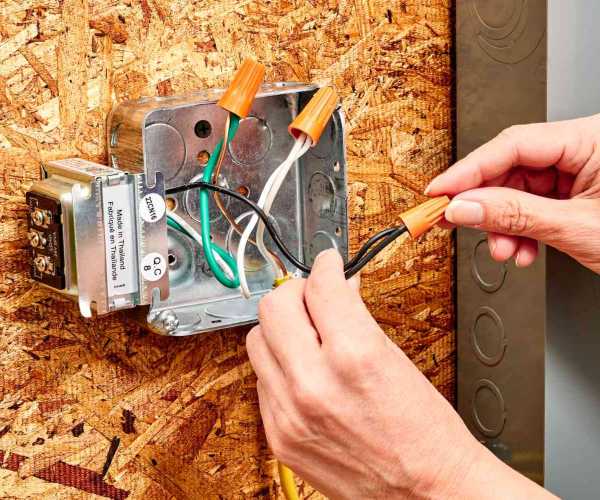
The transformer has two electrical terminals on its back. One doorbell wire from the doorbell button leads to the transformer and another wire leads from the transformer to the doorbell base.
Doorbell Base(Chimes)
The doorbell base has the chimes. There are three terminals on the back often in the following order:
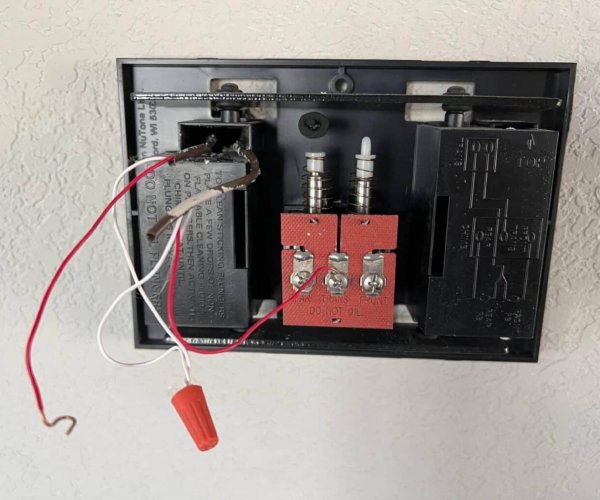
- Rear: Rear is a back doorbell. This terminal leads to an optional second doorbell at the back of the house. You do not need this while wiring a front doorbell.
- Trans: This is the short form of transformer. A single-strand bell wire connects this terminal to the doorbell transformer.
- Front: This refers to the front doorbell. A single-strand bell wire connects this terminal to one of the terminals on the back of the doorbell button.
Electrical Box
This box is a metal box enclosed with a 120V electric cable running into it. The sole function of the box is to power the doorbell transformer. It might also have another device such as an outlet running from it (though these other devices need to be mounted on separate boxes).
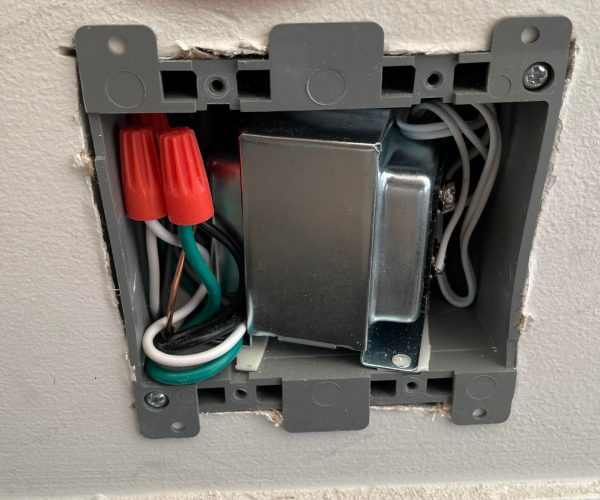
Notice that the box should have knockouts available that can be opened up to allow the transformer to be attached.
Safety Considerations2
Be cautious when wiring the transformer to the electrical box since it contains household current enough to cause grave injury or even death. Work on the electrical box only when the circuit breaker is shut off on the box. Use a non-contact voltage tester to ensure the power is off before working on electrical wires.
What will you need?
Tools/Equipment
- Cordless drill
- Drill bits and drivers
- Flathead screwdriver
- Phillips head screwdriver
- Wire stripper
- Pliers
- Voltage tester
Materials
- Doorbell button
- 50 feet 20/2 coated copper wire
- Doorbell base (chimes)
- Plastic wire connectors
Instructions on how to install a doorbell
1. Plan Layout
- Doorbell: Install a doorbell next to the front door. The button should be nearly 42 to 56 inches high.
- Transformer: The next step is you install the transformer against the available electrical box. Doorbell transformers are often present near the electric service panel.
- Doorbell Base: Then, install the doorbell base in a location such that the chimes will be heard properly in all parts of your home. The base will be surface-mounted.
2. Install Transformer
Turn off the electricity at the service panel and knock out one of the protective covers from the hole that you can find on the side of the electrical box.
Next, attach the transformer to this hole by feeding the three wires in first, followed by the threaded section of the transformer. Turn out the locknut on the inside of the electrical box to tighten the transformer to the box.
3. Wire Transformer to Electrical Box
You have to attach the three transformer wires to the three 12- or 14-gauge wires that are already present in the box. Attach the white wire to the white wire, black wire to the black wire, and green wire to either the green or the bare copper wire. Twist the wires clockwise and follow by capping them with plastic wire connectors. Once you’re done, screw the faceplate or device with the cover back onto the electrical box.
4. Attach Doorbell Base Wire to Transformer
To attach the doorbell base wire to the transformer, screw a single strand of bell wire onto either of the two terminals on the back of the transformer.
5. Run Wire from Transformer to Doorbell Base
After attaching the doorbell base wire to the transformer, mount the base and run the single strand of bell wire from the transformer to the location of the doorbell base.
6. Attach Transformer Wire to Doorbell Base
Attach the wire from the transformer to the TRANS terminal that is on the back of the doorbell base.
7. Run Transformer Wire to Doorbell Button
Attach a second wire to the back of the transformer on the remaining terminal. Fish this wire to the doorbell button’s location.
8. Attach Transformer Wire Doorbell Button
Attach the wire from the transformer to either of the two terminals on the doorbell button’s back.
9. Run Wire from Doorbell Base to Doorbell Button
Attach a single strand of bell wire on the back of the doorbell base onto the FRONT terminal. Fish this strand to the doorbell location.
10. The final part
Root the doorbell base wire around the location of the doorbell. Attach it to the remaining terminal on the back of the doorbell.
With both wires attached to the back of the base, mount the base on the wall. Attach the decorative face by snapping it into place.
What if the wired doorbell does not work?
Check Doorbell Button
If that happens, the problem might be the button itself. Depressing the button may not entirely close the electrical circuit so it is necessary to remove the doorbell button. Detach the wires from the button and holding the coated section of the wires touch the bare ends together. If the doorbell rings the problem is the button. Buy a new one.
Check Doorbell Base
Remove the base cover. Ensure that the wires are attached to the terminals and are secure. Determine whether the electricity is flowing or not using a multimeter.
Do you need to call a professional?
With basic skills, you can attach the doorbell transformer to an existing electrical box and do the wiring as well. The box contains full household current and you might want to hire a qualified, licensed electrician to make this connection.
What is the importance of ring doorbell?
There are many benefits of installing a ring doorbell like:
- You can answer the door from anywhere
- Acts as a visual deterrent to criminals
- Secures your front door
- Suitable for all budgets
- Reduces Insurance cost
FAQs
Q: Can you install a ring doorbell yourself?
A: Installing a ring doorbell is easy compared to other home security and convenience installations. It takes around an hour or two and needs basic tools. However, if you’re unsure or do not have the necessary tools, we recommend to take a professional’s help.
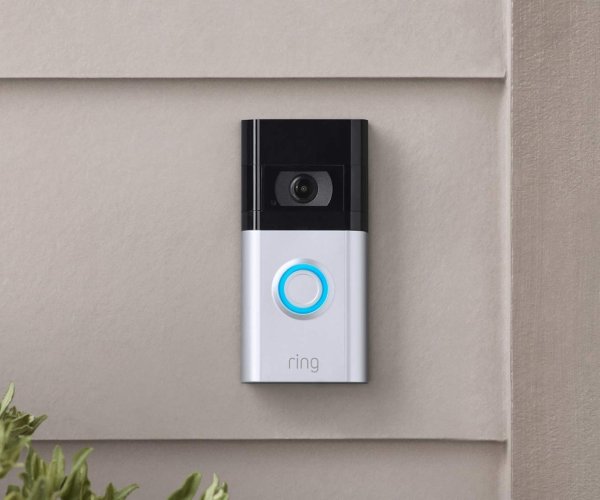
Q: Does ring doorbell need wire?
A: Not necessarily. There are ring doorbells that run on batteries as well.
Also, Read Top 10 Best US Cities for First-Time Home Buyers in 2024
